My last post was all about the causes of amenorrhea, and this week I want to focus on why it’s so important to get your period back if it’s gone missing. I’ve touched on this before in an earlier post about the normalization of amenorrhea, but I wanted to more clearly explain the negative effects amenorrhea can have on your health. It’s about much more than your fertility. It really upsets me when I see articles on the Internet or hear other health professionals tell women it’s not important to have a period, because this couldn’t be further from the truth.
Obviously, if you are pregnant or have gone through menopause, then you shouldn’t be concerned about not having a period. This is for women of reproductive age who are not pregnant.
When I encounter women with amenorrhea, it always interests me to hear how they feel about it. A good number of them are concerned and eager to know what they need to do to get it back. Most women with this attitude are in their twenties or thirties, and it also tends to be a bigger deal to women who are in a relationship. If starting a family one day is on a woman’s mind (or even just her partner’s mind), she’s definitely concerned about her amenorrhea.
There’s another group of women who seem pretty ambivalent about it. They know that they should get their periods back, and they say that they want to, but you can tell there’s no real sense of urgency behind it. Oftentimes these women know that they’re supposed to have a period, which is why they say they want it back, but I can tell they probably aren’t fully aware of the longterm repercussions of amenorrhea.
And then there’s another group – the ones who tell me straight up that they don’t want it back, or who just keep saying they don’t need it back because they don’t want to have kids. They typically don’t fully understand what can happen as a result of amenorrhea.
Look, I get it. Periods can be annoying, and not having a period saves you money on any period-care items like tampons, pads, or menstrual cups. Plus, it’s one less thing to think about and plan around. You don’t have to deal with any negative effects like fatigue or cramping that might come with your period, and you can wear white pants whenever you want! Awesome, right?! If only it were that simple.
To be completely honest, it really disappoints me when women don’t want their periods back. To try to convince every woman to love herself enough to take care of her health is beyond the scope of a single post, and you can’t convince people to work towards something they don’t want. At the end of the day, it’s your own decision if you want to put your health at risk because you feel like it’s inconvenient to have a period. That’s not the choice I would make, but I can’t make that choice for everyone.
That being said, I would like to educate women as much as possible about the importance of having a period. Even if you don’t struggle with amenorrhea, sometimes it helps us appreciate our bodies even more when we understand why they work the way they do. If you think you hate your period, learning more about why it’s necessary might change your mind. The female body is pretty damn magical.
First of all, it’s important to really take a step back and remember why women have periods in the first place. Throwback to the creation of humans! Our bodies were designed to reproduce. That is the body’s priority. This is also tied in with why the female body is more sensitive to stressors in general – it wants to always feel safe and relaxed so that it’s able to reproduce when necessary.
Trust me – I definitely don’t think that having a child is every woman’s sole purpose on the planet. Far from it. I personally have no idea if I want to have children. We are meant to contribute much more to this world than just offspring. From a biological standpoint, however, we were designed to reproduce. Men don’t have that ability, but we do. Since that is the female body’s biological purpose, a woman’s period is a key sign of not only her womanhood in general, but also her overall health. It’s the body’s way of telling us whether or not it is healthy, which means healthy and safe enough to carry a child. If it does not feel healthy or safe enough to carry a child, a.k.a. carry out its main biological function, then this is a problem.
This is why a missing period is a huge signal that SOMETHING ELSE IS GOING ON that you need to address. Even if your period isn’t completely missing, periods that are “off” in some way can also signal that something else is “off” in the body. Cycles that are totally missing, very irregular, painful, or causing extreme side effects could be a sign that something more serious is wrong. This could include autoimmunity, thyroid issues, gut issues, IBD, or even ovarian cancer.
Because a healthy period is such an important indicator of other issues going on in the body, it’s important to address the underlying dysfunction, infection, or stressor, which itself could have a host of unwanted negative side effects on your body short-term and longterm. Those risks will be different for every woman depending on the underlying cause of her missing period. That being said, there are some risks that every woman with amenorrhea faces, simply because of the amenorrhea itself.
Here’s the thing – whether or not you want to have a child, it’s important for your overall health to get your period back. Many people assume that the only downside of not having a period is that it might affect your fertility, but there’s much more to it than that. I want to highlight a few main risks of amenorrhea to help you further understand.
Decreased Bone Mineral Density… A.K.A. Bone Loss
Amenorrhea is a major threat to bone density and can lead to a number of conditions related to bone loss, like osteoporosis and osteopenia. Sadly, this could hit you at a young age, but it also might not really show itself for a few years down the line. If you don’t care about your amenorrhea because you think that your bones are fine right now, how do you know what they’ll be like in a year?
It saddens me to think about the number of women I talk to who are in their twenties and thirties, and even late teens, and have already been diagnosed with osteoporosis or osteopenia. I really wish that wasn’t the case, and I know it’s hard for people “on the outside” to believe it – but it is very, very true. How would you feel if you were 25 but had the bone health of a 70-year-old? This impacts women’s lives in a number of ways that they often don’t fully understand unless they experience it firsthand, by which time it is usually too late. Imagine not being able to go on long hikes with your friends, go out for a night of dancing, do your favorite workout… Imagine if your body felt like that of the stereotypical frail, old woman while your friends were out and about running around and being “young.” This affects women not only physically, but also emotionally.
Even if it doesn’t hit you in your twenties or thirties, though, do you really want to be even 40 or 50 with the bone health of a 75-year-old? Probably not. We live long lives now…40 or 50 isn’t old. When you take care of your health, your 40s and 50s can be your prime years!
Compromised bone health can lead to early death. You could fall and snap a bone very quickly. What if you fall, get put in the hospital, and then another complication arises while you’re there?! Personally, I don’t wanna go down at a young age because I have brittle bones. Aiming for 100.
How does amenorrhea affect bone health? Estrogen helps stimulate bone formation and bone remodeling, and it also helps suppress bone breakdown. Estrogen also helps vitamin D do its job to help build bones, because estrogen is needed for the expression of vitamin D receptors in the body. Additionally, chronic physical and emotional stress will increase cortisol in the body, and chronic cortisol is associated with less bone mineral density.
Age can also play a role in how much your bone health is at risk. We’ve gotten about 90% of our bone mass formation done by the time we are 18. About 40-50% of our peak bone mass is formed during puberty, which is why having amenorrhea as a teenager can be detrimental.
In a healthy body, once women are 30 they lose about 1% of their bone mineral density each year naturally. With amenorrhea, though, this rate of bone loss gets accelerated to that of a menopausal woman – up to five times greater than you should be losing.
The bone loss that occurs for women with amenorrhea is most likely irreversible, and the longer you don’t have your period, the worse your bone health can get. This is why it’s important to keep an eye on how long it’s been. Sometimes the body just needs a bit of time to naturally even out its hormones after coming off of birth control or overcoming an illness, for example, but once it gets past a certain point, it’s important to start to take action. I personally think that point is after 6 months, and definitely no longer than a year. When it comes to protecting your bone health, exercise and hormonal therapy aren’t good enough, and neither is a really good calcium supplement. You need to fix the underlying cause.
The best way to find out about the exact state of your bone health is to get a DEXA scan from your doctor.
Cardiovascular Health
Amenorrhea also puts a risk on your cardiovascular health, because estrogen is protective of the heart and cardiovascular system. Women in general are more likely than men to die from heart disease, but they actually tend to develop cardiovascular issues later on in life than men do. This includes health concerns like high blood pressure, clogged vessels, and heart attacks. Women tend to develop these problems later than men because estrogen levels drop during menopause, greatly increasing the risk for heart disease.
The endothelium is a thin membrane lining the inside of our blood vessels and heart. Amenorrhea can lead to endothelial dysfunction, which can make it difficult for the blood vessels to dilate and relax. When the blood vessels can’t dilate fully, this increases risk of cardiovascular disease and stroke, as well as impairs lipid and glucose metabolism in the body, further increasing the risk of cardiovascular disease.
Mental Health Issues, Weight Issues, and Blood Sugar Imbalances
Healthy levels of sex hormones play a key role in regulating your mood. Having low estrogen and high cortisol, as seen in women with amenorrhea, can have a major effect on serotonin and dopamine levels in the body, which can then lead to issues like anxiety and depression. These hormonal changes also cause a number of other related symptoms like mood swings, fatigue, and low libido.
No period can also mean low leptin, and low leptin means low estrogen. Having low leptin sends a starvation signal to the brain, which can lead to fat storage. Low leptin will also lead to increased hunger, but that’s probably a good thing because most women with amenorrhea need to eat much more food in order to restore their periods.
Besides that, estrogen helps us with insulin sensitivity, weight maintenance, and overall health. This is why low estrogen can lead to blood sugar imbalances and problems with weight down the line. Oftentimes women with missing periods are underweight for their body type, but the hormonal changes as a byproduct of the amenorrhea can eventually cause a rebound effect down the line. I see this often: a woman is incredibly thin in her twenties, but her body rebounds in her thirties because of her health status years before, she puts on extra weight despite not making any changes to her diet or exercise routine, and it won’t budge. That’s the power of hormones. Most people don’t want their bodies to rebound when they’re older. It’s about prevention.
Infertility and Birth Complications
Of course, amenorrhea puts your fertility at risk. If you’re not ovulating, then you can’t have a baby. If you never get your period back, you’ll be infertile. However, even if you do get your period back, there’s still a chance that your history of (or cause of) amenorrhea could cause fertility issues and/or birth complications down the line if you ever do decide you want a child.
There are a lot of young women who tell me that they’re not worried about becoming infertile or having birth complications later on because they don’t even want to get pregnant. I urge you to think about it a bit differently, though. First of all, do you want to not have a child because you literally cannot, or because you are CHOOSING to not have one? Maybe it’s just me, but if I decide I don’t want kids, I want that to actually be a choice, not a “well I couldn’t even if I wanted to” situation.
Beyond that, though, it’s unfair to assume you know for sure whether or not you ever want to have children in the future. Think about who you were a year ago or five years ago. I bet there are things you want now that you never thought about years ago, or even months ago. What if you meet someone, fall in love, and he wants kids? What if that shifts your perspective? What if you have some unexpected experience that completely changes your mindset? There’s nothing wrong with not wanting to have kids, but I think it’s unwise to take that choice completely off the table for yourself (and your partner) when you still have so much life to live.
Plus, whether or not you want kids…do you really want to put your bone health and heart health at such high risk anyways?!
Overcoming amenorrhea takes intrinsic motivation and also plenty of dedication. Your period won’t come back unless you make changes in your life, and making changes comes down to YOU. No one else can do it for you. Hopefully learning more about what can happen as a result of amenorrhea helps you understand why it is so important for your overall health to have a real, healthy period. It takes a lot of self-love and self-belief to say, “Okay. I’m committing to this. I’m going to change things and do what I need to do to get my period back.” Overcoming amenorrhea isn’t simple or quick – it’s a process. Placing your health as your top priority is the ultimate act of love you could ever show yourself.

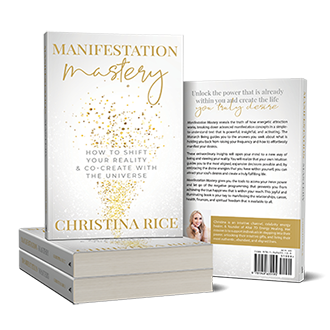
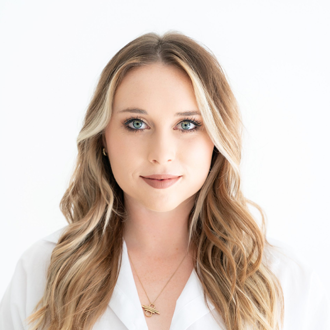
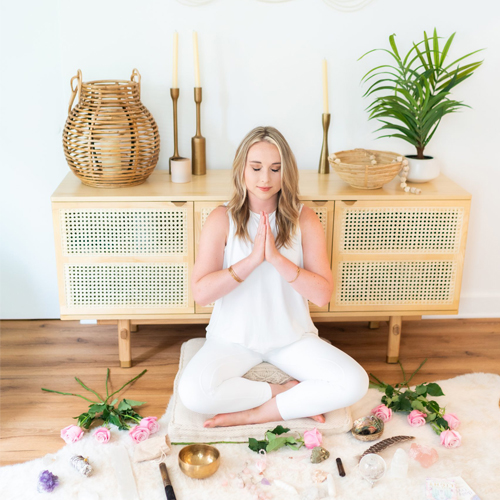
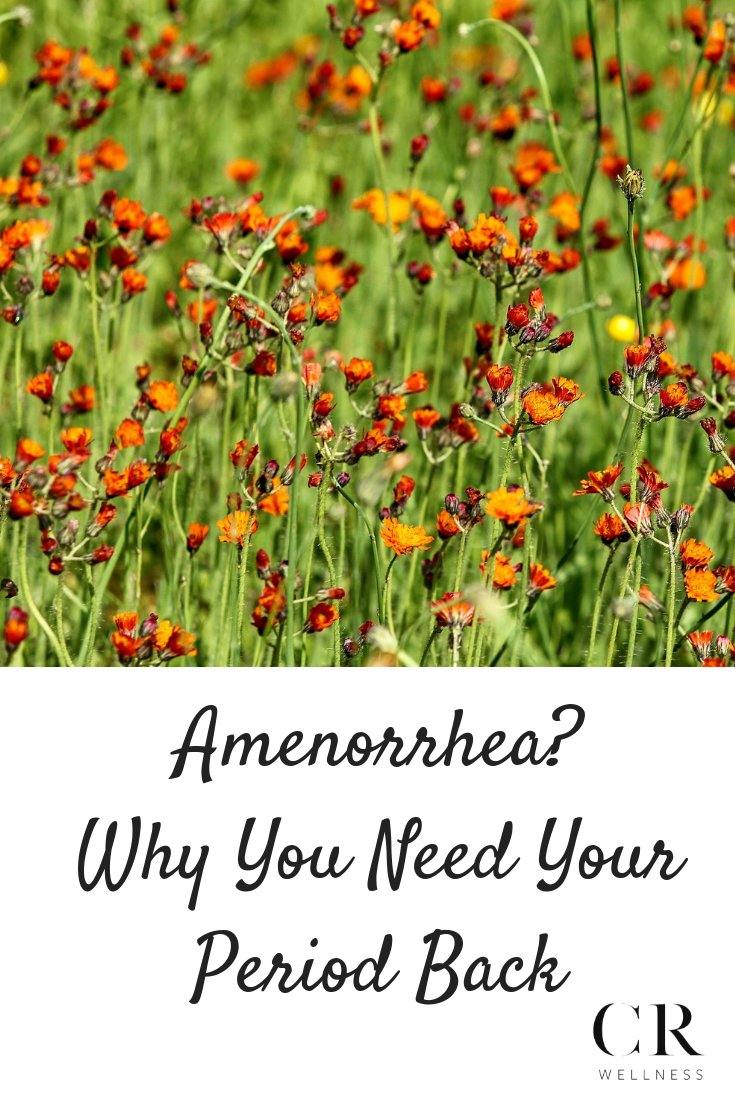




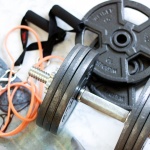




Get Updates
And Goodies
We’re over fake “wellness.” It’s time to unlock your magic & magnetism. Are you ready to vibe higher?
Are you ready to finally optimize your health habits for real results and true health?